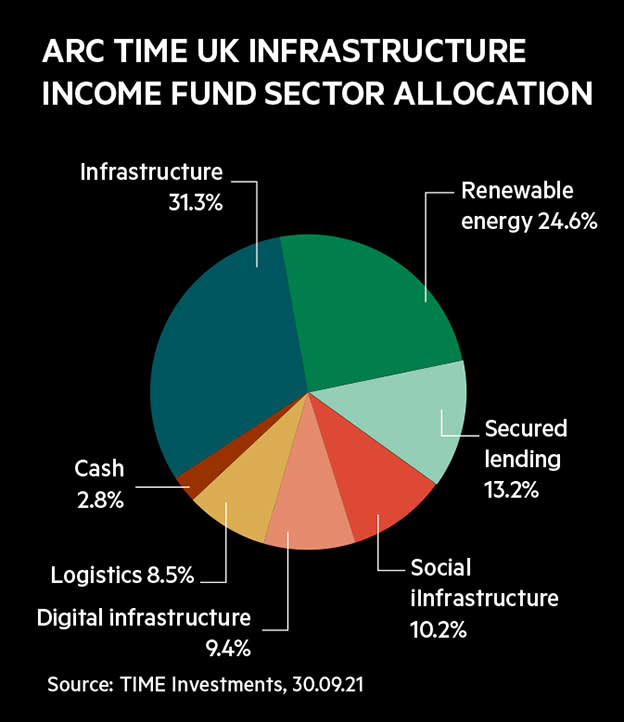Q: Is it better to let your state pension accumulate? I have accumulated about two years' worth of pension but I am wondering if I would be better off taking?
P Jayaweera
- A key factor in deciding whether to defer the state pension is if you became eligible to start receiving it before or after 6 April 2016
- Those eligible for the state pension before this date generally get a better deal if they defer it
- But deferring the state pension, regardless of when you became eligible to receive it, can mitigate tax
When you reach state pension age, currently 66, you do not get it automatically – you have to claim it via a government form. If you do nothing, your pension will defer and when you do start to take it you get higher weekly payments. If you do not need state pension income immediately, whether you should defer taking it depends on a number of factors relating to your personal circumstances.
Although you get higher payments when you eventually receive your state pension it can take some time to recoup the amount you did not take during the period that it was deferred. So if you die before this ‘break even’ period is complete you could lose out financially.
A key factor is whether you became eligible to start receiving the state pension before or after 6 April 2016.
If you were eligible for your state pension before 6 April 2016, for every five weeks that you defer it increases by 1 per cent, as long as you defer for at least five weeks. This equates to 10.4 per cent a year. So, for example, the full basic state pension for people in this category is currently £137.60 a week, but if they deferred for a year they would get an extra £14.31 a week – 10.4 per cent of £137.60. However, this doesn’t account for any increase in the state pension so with the annual rises from the triple lock the amount could be higher.
“If you receive the extra amount in weekly instalments, after one year’s deferment it would take 9.6 years to reach the break-even point in income terms, before tax,” says Kay Ingram, chartered financial planner.
Alternatively, you could take the amount of the state pension not claimed, as well as interest worth Bank of England base rate plus 2 per cent, as a one-off lump sum payment if you have deferred your state pension for at least 12 months. However, you are taxed on this sum at your marginal income tax rate when you receive it so, for example, if you are a basic-rate taxpayer, at 20 per cent.
Whether you take it as a lump sum or increased weekly income depends on factors including your health and how long you expect to live, as well as your financial requirements.
When you die, your spouse or civil partner may benefit from an uplift in their pension when they reach state pension age (see boxout). If you do not have a spouse or civil partner and die while your pension is deferred, your estate can claim up to three months’ pension.
“An annual increase rate of 10.4 per cent, including indexation, the option of taking it as a lump sum and [the benefits to the] dependents pension are extremely generous in times of low interest rates,” says Ingram. “While it may be possible to take and invest the net pension [rather than defer it] and receive a higher return, there is investment risk to capital and income, so personal risk tolerance and capacity for loss will also play a part in your decision.”
If you became eligible for your state pension on or after 6 April 2016 the full weekly payment is currently £179.60. If you defer it for at least nine weeks, for every period of that length which you defer it the weekly payout increases by 1 per cent, or 5.8 per cent a year. So, for example, if you defer for 52 weeks you could get an extra £10.42 per week – or more after the effects of the triple lock.
However, Ingram says that it takes 17.25 years to recoup the amount that you deferred in cash flow terms, before tax, as you cannot take the extra amount as a lump sum.
She adds: “Generally, those eligible for state pension before 6 April 2016 get a better deal from deferral than those who qualified after. The terms on which the new state pension is deferred can give poor value, especially if the individual does not live long enough to benefit from the increased pension. [But] at a rate of 5.8 per cent, with index-linked increases, the state is still offering a competitive deal.”
Andrew Hirst, partner at Equilibrium Financial Planning, adds that 5.8 per cent or higher a year would be hard to beat by investing “and that’s a risk-free increase too”.
But because of the number of years it takes to recoup the pension payments deferred, especially for those eligible for the state pension after April 2016, he adds: “On that basis, it’s rare that I recommend deferring a state pension – no one knows how long they’ll live.”
He also argues that it depends what you do with the pension. If you draw it net and hold it in cash so that it is not making much of a return, it loses its real value against inflation each year. If you don’t need state pension income, Hirst suggests investing it with the aim of at least a real return.
You cannot get extra state pension if you or your partner receive certain benefits such as income support so in these instances consider whether it is really worth deferring it.
However, it could make sense to defer taking your state pension if you are in a higher income tax bracket but expect to fall into a lower income tax bracket in future because you have, for example, retired (see case study). It could also make sense to defer if taking the state pension uses up other tax allowances.
Deferring can help you stay in as low a tax band as possible in a year in which you are due to receive a large level of income or capital gain. This could be, for example, because you sold a buy-to-let property, received a large dividend from a company or cashed in an investment bond. Even if you have started to take your state pension you can suspend it for a while before resuming withdrawals. Doing this may mean that you use up less of your personal allowance for income tax and basic rate tax threshold.
Taking your state pension and investing it outside a pension wrapper increases the size of your estate. If this takes the value of your estate above the inheritance tax (IHT) allowance limit of £325,000, Hirst says that you could give away your state pension payments as excess income because doing this doesn’t incur IHT.
Or you could put the state pension payments into a private pension which can be passed onto your heirs IHT-free and get tax relief at your marginal rate on the contributions (see case study).
<boxout> Spouse benefits
If you reached state pension age before 6 April 2016 when you die your spouse or civil partner can usually inherit the extra state pension you earned by deferring. If you are already claiming the extra state pension when you die your spouse/civil partner will inherit the extra amounts as weekly payments with their state pension. If you die after having deferred your state pension for a year or more, your spouse/civil partner can inherit it as a lump sum or weekly payments. If you die after deferring your state pension for between five weeks and a year, your spouse/civil partner will inherit it as weekly payments with their state pension. But if you die less than five weeks after deferring your state pension the payments for those weeks become part of your estate.
If you became eligible for the state pension after 6 April 2016 your spouse does not benefit from any uplift. “The new state pension ceases on death and the provision of a spouse pension applies only to benefits built up before 2016,” explains Ingram. “Taking account of how death benefits are treated under the state pension before and after 2016 is important, especially if a couple have entitlement under each regime.”<boxout>
<boxout>Case study: Deferring the state pension while a higher-rate taxpayer
Aziz is 66 and a higher-rate tax payer. He plans to retire at 67 when he will draw on tax-free cash from his self-invested personal pension (Sipp) and tax-free income from his individual savings account (Isa) investments. This means that he will be a non-taxpayer.
If he draws his state pension of £179.60 a week now, he will pay 40 per cent tax on it. But if he defers it for one year, he will not initially pay tax on the state pension as its annual amount – £9,339.20 – falls within the annual personal allowance for income tax of £12,570. He will not pay tax until his total annual taxable income exceeds the personal allowance.
Aziz expects that the tax-free cash from his Sipp will meet his outgoings for the first five years of retirement so he will not incur tax on his state pension until its annual payouts rise to more than the personal allowance. If he leaves his state pension until age 67 it will increase by £541 a year with further guaranteed increases applied under the triple lock, at a minimum of 2.5 per cent a year.
“In income cash flow terms, it would take Aziz 10.33 years to break even after tax,” explains Ingram. “If he is confident of living beyond age 77, the ongoing guaranteed increasing income earned through deferral could be beneficial.”
If Aziz instead takes the state pension now and, after 40 per cent income tax, invests it in his pension, the pensions tax relief at his marginal rate would neutralise the tax payable on the pension. And 25 per cent of his Sipp can be drawn tax-free, although withdrawals above that amount are subject to income tax.
If he invests the state pension payments in his Isa he will not get tax relief. But he will not pay tax on withdrawals from his Isa.
Whether investing state pension payments will increase their value more than deferring them depends on investment returns, which are not guaranteed.
Source: Kay Ingram<boxout>
<boxout>Case study: Retirees with no need of immediate income
Jackie is age 66 and retired. She has a small private pension in payment and a Sipp worth £200,000. She doesn't need the state pension as her husband, who is age 72, has two defined-benefit (DB) pensions which provide the bulk of their retirement income. The DB pensions will also provide a 50 per cent spouse pension if Jackie survives her husband, who also draws the pre-2016 state pension.
Jackie wants to take a lump sum from her Sipp and give it to her children. This counts as a potentially exempt transfer from her estate and will be added back into it if she dies within seven years of making the gift. But if she leaves this money within her Sipp she could leave it to her children after her death IHT-free, and this money would continue to grow tax-free until taken out of the Sipp. As Jackie’s taxable income in retirement is below £12,570, she can draw her state pension without paying tax on it and regularly gift it to her children as surplus income without incurring IHT.
But as Jackie’s husband’s private pensions comfortably meet their outgoings he could pause his state pension. He was 65 before April 2016 so would benefit from an increase of 10.4 per cent for each year that he pauses payment. Although his pension will cease when he dies, any increases will be reflected in the spouse pension which Jackie, as his widow, will inherit.
If Jackie’s husband resumes his state pension he could take the extra amount as higher weekly payments or a lump sum payment.
Source: Kay Ingram<boxout>












